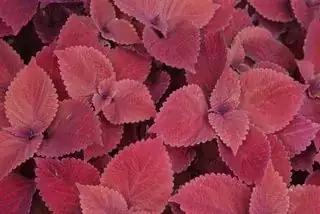Plants need more than just N-P-K. There are other nutrients required for plant growth: calcium (Ca), magnesium (Mg), and sulfur (S). So-called micronutrients are needed in only very small (micro) quantities, boron (B), copper (Cu), iron (Fe), chlorine (Cl), manganese (Mn), molybdenum (Mo) and zinc (Zn).
For outdoor gardening (i.e. in the ground) the micronutrients are usually present in sufficient quantities. Adding decent quality compost or manure will provide them if they are missing.
Indoors, you are controlling all of the variables: the soil, nutrients, light, etc. There's no external ecosystem (worms, rain, etc) delivering nutrients to your potted plant. So you have to add these through fertilizer.
In the absence of a specific problem with your plant -- assuming you just want a proactive feeding program -- I'd recommend a "balanced" organic fertilizer. By "balanced" I mean that it has roughly similar numbers for N-P-K (like 10-10-10 or 8-12-9) -- this ensures that you're adding all of the major nutrients. Organic fertilizers will often contain secondary macronutrients and micronutrients as well, but you will need to read the label. (Word of warning: some organic fertilizers stink. Don't use fish emulsion in the office! Your cube mates will throw you out.) If you don't pick an organic fertilizer, at least look for "complete" or something that advertises micronutrients.
If your plant has a problem, you'll first need to diagnose the problem before you can choose a remedy. Sometimes what appears to be a nutrient deficiency has a different root cause. (E.g. Frequent watering can wash away water soluble nutrients, leaving nothing for the plant to consume. If the soil drains too quickly so that over-watering is necessary, then the root cause is drainage and the soil should be changed to something that retains water better. Or: a plant that has slowed its growth may be root bound. Fertilizing won't help in this case -- it needs a larger pot.)
Lastly, some plants have specific requirements in order to achieve good results. For these, you'll want to buy a formulation for those specific plants. (Orchids? Succulents? I must admit that I'm more often brute force than finesse, so I tend to shy away from indoor plants and just throw tremendous amounts of horse and poultry manure and compost at my outdoor vegetables until the soil tests tell me I can stop.)
